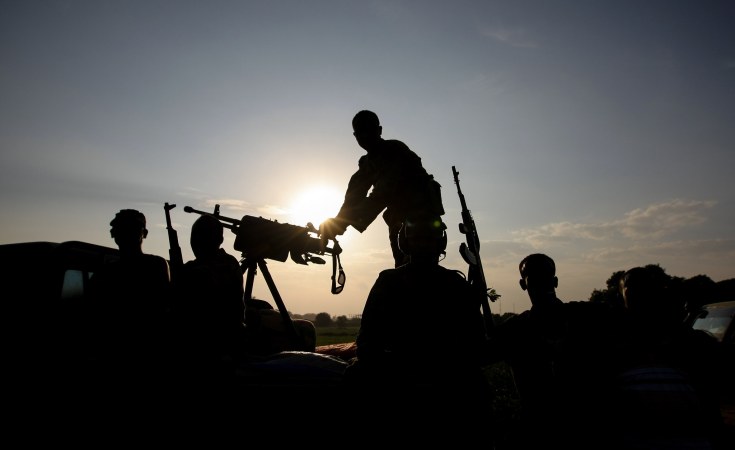Somali diplomats said Friday that Russia had offered to help support Somalia's armed forces in their battle against the al-Shabab terrorist group.
The diplomats, who asked for anonymity because they were not authorized to speak to reporters, said Russian Foreign Minister Sergey Lavrov had made the offer during talks with his Somali counterpart, Abshir Omar Jama, in Moscow.
One diplomat said, "Russia was ready to provide Somalia's army with military supplies, to strengthen the government fight against al-Shabab."
The diplomats did not specify the kinds of materiel Russia was offering to Somalia, which is under a long-standing U.N. arms embargo.
The U.N. Security Council imposed the embargo in 1992 after the outbreak of civil war and factional violence. The embargo was partially lifted in 2013 to help Somalia's security forces fight the Islamist militants.
Russia's offer came hours after al-Shabab militants stormed a military base manned by African Union forces from Uganda in Bulo Marer, an agricultural town in the Lower Shabelle region, about 110 kilometers south of Mogadishu.
Earlier, at the opening of the talks between the two foreign ministers, Lavrov emphasized the long relationship between the two countries, which goes back to quick Soviet recognition of Somalia after it gained independence in 1960.
He also said he and Jama would discuss preparations for the Russia-Africa summit scheduled for late July in St. Petersburg.
Diplomatic relations
In modern times, Russia and Somalia have had fairly routine diplomatic relations, with Russia sending humanitarian aid to Somalia several times.
In May 2010, Somalia reacted angrily to the way Russian marines handled their rescue of a tanker, the MV Moscow University, that had been hijacked 560 kilometers off the coast of Yemen.
Russian media reported at the time that 10 Somali pirates, who had taken the tanker and its crew hostage, were released on the open sea because there were no grounds to prosecute them in Russia.
Somali authorities said the pirates never made it ashore and likely died at sea.
Somalia's Foreign Ministry statement at the time warned that relations with Russia might be harmed over the incident and demanded an apology from the Russian government.
Since then, two Somali prime ministers, Omar Sharmarke and Hassan Ali Khaire, have met with top Russian officials requesting assistance to strengthen the Somali National Army.
In recent years, Somali diplomats, who asked for anonymity, told VOA Somali that the Russian military has been eyeing Berbera port, located in the breakaway republic of Somaliland, as a potential base on the Red Sea.
Last November, Russia, China, Gabon and Ghana abstained from a Security Council vote to maintain an arms embargo on Somalia, in support of Mogadishu's strong objections. The United States and Britain supported maintaining the ban, although the measure did loosen restrictions on some weapons like portable surface-to-air missiles in recognition of the government's improved oversight of weapons and munitions.


